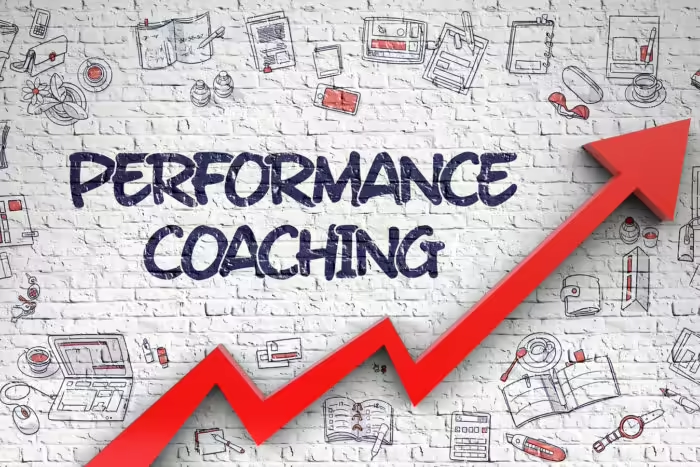Workplace coaching is a one-to-one learning and development intervention that uses a collaborative, reflective, goal-focused relationship to achieve professional outcomes that are valued by the employee (Smither, 2011)
Performance coaching is an ongoing process which helps build and maintain effective employee and supervisory relationships. Performance coaching can help identify an employee's growth, as well as help plan and develop new skills.
Using their coaching skills, supervisors evaluate and address the developmental needs of their employees and help them select diverse experiences to gain the necessary skills. Supervisors and employees can work collaboratively on developing plans that might include training, new assignments, job enrichment, self-study, or work details. (Jones et al; 2016)
To improve employee performance coaching is essential. Coaching is part of the day-to-day interaction between a manager and an employee who reports to them, or an HR professional and the line managers in the HR staff person's organization.
Employees who are not happy often leave an organization. Many times, their departure occurs only after they have caused severe morale and productivity problems. One disgruntled employee can create havoc among fellow employees, especially if the departing employee has a strong peer following.
Coaching often provides positive feedback about the employee's contributions. Employees need to know when they are effective contributors. The goal of coaching is to work with the employee to solve performance problems and to improve the work of the employee, the team, and the department.
Employees who respond positively to coaching and improve their performance can become valued contributors to the success of the business. Employees who fail to improve will find themselves placed on a formal performance improvement plan, known as a PIP. This sets up a formal process wherein the manager meets regularly with the underperforming employee to provide coaching and feedback.
Managers can use performance coaching to help employees who are effective contributors improve and become even more effective contributors. Done well, coaching can help an employee continuously improve their skills, experience, and ability to contribute.
The time managers spend in performance coaching with their best, most contributing employees is time well spent. It is more likely to produce increased results for the organization and the manager's department and priorities.
However, becoming a better performance coach for your team can sometimes be challenging. If you want to improve your performance as a coach, there are some things you may want to do.
For instance, consider working with a reliable leadership coach who can help you discover your full potential. That way, you can help your employees improve their work performance, contribute to the organization's success, and be better persons. Fortunately, organizations like NG Leadership Coaching offer services that provide the tools you need to become a more effective leader.
Besides finding a coach, you can also boost your coaching performance by taking an accredited training program. These programs equip you with essential leadership skills to help you become better for yourself and your employees.
Coaching steps:
Demonstrate your belief in the employee's ability to improve
Show confidence in the employee's ability and willingness to solve the problem. Ask him or her for help in solving the problem or improving their performance. Ask the employee to join in with you to increase the employees' effectiveness as a contributor to your organization.
Describe the performance problem to the employee
Focus on the problem or behavior that needs improvement, not on the person. Use descriptions of the behavior with examples so that you and the employee share meaning.
Determine whether issues exist that limit the employee
Ask yourself whether the employee can perform the task or accomplish the objectives. Four common barriers are time, training, tools, and temperament. Determine how to remove these barriers, assuming one exists. Determine whether the employee needs your help to remove the barriers—a key role of a manager—or if he or she can tackle them alone.
Discuss potential solutions to the problem or improvement actions to take
With a lower-performing employee, ask the employee for their ideas about how to correct the problem, or prevent it from happening again. With a high performing employee, talk about continuous improvement.
Coaching for Success
Taking employees from compliance to commitment can be difficult. Finding or creating that factor means sometimes helping the employee get in touch with what matters to him/her - what are his/her internal goals (Rosha; 2016). Sometimes this is best achieved through the use of open-ended questions leading to the employee's self-discovery.
Agree on a written action plan
The written plan should list what the employee, the manager, and possibly, the HR professional, will do to correct the problem or improve the situation. Identify the core goals that the employee must meet to achieve the appropriate level of performance that the organization needs.
Feedback
Feedback is the primary tool used to provide employees with information and guidance. Feedback consists of two-way communication.
Employee feedback provides managers with clues regarding how they are hindering or aiding their subordinates' work performance.
Supervisory feedback should inform, enlighten, and suggest improvements to employees regarding their performance. Supervisors should describe specific results they have observed as close to the event as possible so ideas stay fresh and any needed adjustments can be made promptly.
Successful supervisors develop a routine that includes frequent, in-depth discussions about performance with employees. The routine should remain informal and the discussions should focus on how both the employee and supervisor view the employee's performance and development. (Webster; 2018)
Munodiwa Zvemhara is a consultant at Industrial Psychology Consultants (Pvt) Ltd a management and human resources consulting firm.
Phone +263 4 481946-48/481950/2900276/2900966
Cell number +263 783168453
Email: munodiwa@ipcconsultants.com or visit our website at www.ipcconsultants.com

